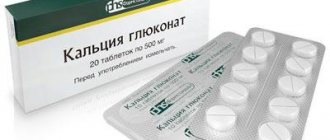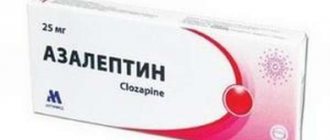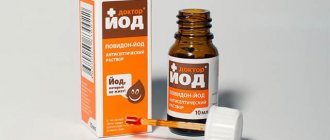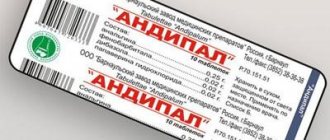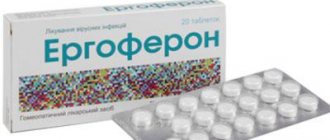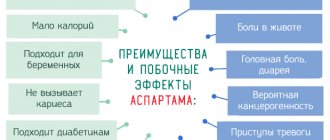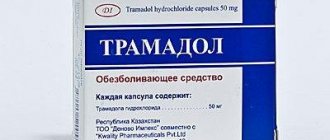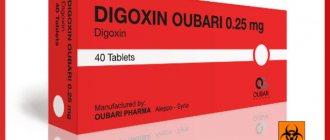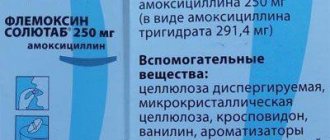Taking antidepressants helps improve a person's quality of life, but only if drug therapy is necessary. Treatment on the advice of colleagues and friends, exceeding the number of pills taken, or improper storage leads to irreversible consequences. Accidental or intentional overdose of antidepressants often causes death . Only urgent medical intervention can interrupt the destructive effect of pharmacological drugs and save the victim from death.
Purpose of antidepressants
People, experiencing extreme fatigue from the modern frantic pace of life, turn to specialists with complaints of nervousness, insomnia, causeless anxiety, and fears. In response to complaints, the doctor tries to select the necessary drugs in a dosage that will not harm the patient, but will help improve the condition.
Taking medications without a prescription from a specialist will not be able to remove negative symptoms, but will only lead a person to a sad state with characteristic signs: weakness, drowsiness and apathy.
Side effects
- Blurred vision;
- dilated pupils;
- dry mouth;
- thermoregulation disorders in the human body;
- constipation;
- urinary retention.
It is important that all of the above side effects may indicate poisoning with an antidepressant, therefore, at their first manifestations, you must inform your doctor. The dose of the drug is individual; there is no maximum or minimum. If the dosage of an antidepressant is incorrectly prescribed, an overdose occurs in the human body, after which the following symptoms are observed:
- lethargy and drowsiness;
- speech is impaired and the person stops thinking logically;
- delusions and hallucinations occur;
- continuous vomiting;
- convulsions;
- heat;
- coma.
Antidepressants affect the cardiovascular system
Types of antidepressants
Based on the patient’s complaints, the doctor prescribes suitable medications that have different effects on the body.
Effect on the body
Depending on the action, there are:
- Sedatives. They can help if a person is in an anxious state, he is constantly overcome by fears and anxieties.
- Stimulating. The drugs act in the opposite direction and help the patient who is apathetic about what is happening around him. They stimulate the nervous system, which allows the patient to return to normal life and look at the world with interest again.
- Balanced. They contain substances that can simultaneously produce the two effects described above.
Tricyclic antidepressants
They belong to a separate group. The tricyclic form has a pronounced effect and is used to treat severe forms of depression. Even a small increase in dose will lead to disastrous consequences.
People often confuse two different groups of drugs - antidepressants and anxiolytics (tranquilizers). The latter can be addictive, and it is difficult for the patient to refuse to take them. And they have a stronger effect than antidepressants. Tranquilizer poisoning is more common.
Fatal degree of intoxication
It is observed when taking 900-2000 milligrams of the drug.
A few seconds after taking the medication, motor dysfunction, agitation, and involuntary urine loss occur. The man screams, runs, foam comes out of his mouth. After such an attack, the patient falls asleep for a long time.
An excited state usually alternates with lethargy. This phenomenon is especially characteristic of an overdose of tricyclic antidepressants. However, the patient should not be allowed to sleep because this may worsen his well-being. You need to constantly bother the person, talk to him.
Contraindications for use
There are cases when antidepressants are contraindicated for use:
- It is not recommended for people with serious heart pathologies, including after a myocardial infarction.
- Acute alcohol poisoning.
- Pregnancy and childhood do not become direct contraindications, but the mentioned group of the population should approach their use with caution. Medicines can negatively affect the nervous system of a small child or developing fetus. Admission is possible under the strict supervision of a doctor; the type of antidepressants and dosage must be selected by the doctor, taking into account all the risks. If a pregnant woman was using antidepressants before conception, she should not stop taking them on her own. A sudden, unauthorized refusal of treatment can lead to deep depression, which poses a risk to the life and health of the expectant mother and baby.
Dosage
According to the ICD in its tenth revision, depression is included in the list of mental disorders, code T36-T50. Treatment is prescribed based on how the patient feels and how often he has relapses.
Taking medications on your own is dangerous. Some can be addictive, like a drug.
When filling out a prescription, the doctor must inform the patient: how many tablets to take, what dose should be indicated on the package. Any drug is accompanied by instructions indicating the permissible dosage. Recommendations must be followed. It is dangerous to combine these medications with alcohol.
Unpredictable consequences will arise if the tablets fall into the hands of children. Even for adults, taking more than one gram of a tricyclic antidepressant is life-threatening, and taking 0.5 grams can cause severe poisoning.
Causes of overdose
The main causes of an overdose of antidepressants include uncontrolled use of drugs, self-prescription without consulting a doctor, and unauthorized increase in the dose prescribed by a specialist. A person taking antidepressants should pay attention to how and where the drugs are stored. Failure to comply with storage conditions or use of medicines that have expired can cause poisoning. The patient should make sure to keep the tablets out of the reach of children, as the instructions warn. Young children are capable of taking pills for fun, causing poisoning.
Statistics call the main mistake the fact: many patients, deciding that they have achieved the desired effect, independently stop taking medications. As a result, the symptoms return over time. A person upset by the failed recovery seeks to restore the interrupted treatment, increasing the dose without consulting a doctor.
Such medications should never be taken with sweet soda, juices or coffee, as this can worsen their effect on the body and negatively affect the patient’s condition. Antidepressants are washed down exclusively with plain water. Special cases include suicide attempts when a person deliberately takes a large dose of antidepressants.
The danger of uncontrolled use
Today, people experience the effects of stress every day. Many people have difficulties at work or with their families. Depression may occur due to fatigue and emotional stress. To eliminate its manifestations, some use special medications.
However, not everyone who uses antidepressants visits a doctor first. There are quite affordable means. They can be purchased at any pharmacy and do not require a prescription. Taking such pills on the advice of friends or relatives is strictly prohibited.
After all, only a doctor can correctly assess the patient’s condition and select the appropriate drug in an adequate amount. An overdose of antidepressants often occurs as a result of consuming too many medications. This is a condition that is accompanied by severe intoxication of the body and often leads to serious consequences, even death.
Symptoms of poisoning
Symptoms of antidepressant overdose depend on the degree:
- Easy. A person experiences a feeling of anxiety, trembling throughout the body, dry mouth, and headache. At this stage, if no attempt is made to help the victim, a negative outcome is possible.
- Average. It is already difficult for a person to control his speech and movements, he experiences lack of coordination in space and sometimes is not even able to get himself out of bed. Possible loss of consciousness.
- Heavy. The victim is most likely no longer conscious. The function of the heart suffers, the number of its contractions increases to the limit, and blood pressure, on the contrary, drops. This symptom, if left untreated, leads to coma.
A cyclic antidepressant causes more dangerous poisoning; the drug is quickly absorbed into the mucous membrane of the gastrointestinal tract.
Coma
If the patient is not provided with appropriate assistance, he will certainly face a further stage - coma. To fall into it, it is enough to drink only 0.5 g of the drug. Complete loss of consciousness and lack of reflexes develops. In a favorable situation, the coma turns into a long sleep, after which the patient recovers.
Death
A fatal outcome is the result of taking 0.9 g of the drug. Death occurs from disturbances in heart rhythm, breathing, blood circulation and a sharp drop in blood pressure.
Severe degree of intoxication
It is characterized by the following symptoms:
- Uncontrolled eye movements.
- Poor reaction of the visual organs to light.
- Respiratory dysfunctions.
- Failures in myocardial function (often observed with an overdose of tricyclic antidepressants).
- A sharp decrease in blood pressure, which threatens the patient’s life.
If the victim was provided with timely medical assistance, he can wake up from a coma and fall asleep for a long time. This condition is considered a good sign. Most likely, the patient’s body will recover quickly.
Help for the victim
Anyone who has taken a large dose of medication needs emergency assistance, otherwise the outcome will be disastrous.
The patient should immediately rinse the stomach by preparing a water-salt solution or a solution of potassium permanganate, and give a sorbent (activated carbon, polysorb, etc.) to drink to remove toxins from the body. Then you are supposed to do an enema to speed up the process. Before the ambulance arrives, it is permissible to put the person in bed in a well-ventilated area and provide plenty of fluids in the form of drinking water or tea with sugar. If the patient has fallen into an unconscious state, before trying to bring him back, it is necessary to urgently call a medical team.
Help yourself
If a person experiences an overdose while alone, they should immediately call an ambulance. Before her arrival, rinse your stomach yourself, if you can do it. If not, do not allow yourself to fall asleep, patting yourself on the cheeks, wash your face with cold water, try to talk out loud, actively rub your ears with your palms. Any methods that can bring a person to his senses and wait for qualified help will do.
Antidepressants have an effect on the central nervous system, inhibiting brain function. There is a high chance of falling into a coma. An overdose of antidepressants causes respiratory depression; it is necessary to monitor the flow of air, take even and calm inhalations and exhalations. Try to drink small sips, gradually, but drink large quantities of water - it helps the body remove toxic substances.
If the patient's condition temporarily improves, it is impossible to do so, because with an overdose of medications, temporary improvements may occur, followed by a sharp deterioration. It is better to trust in the future to professional doctors. They will administer an antidote as first aid.
How to do a closed cardiac massage?
This procedure should be done only after there is complete absence of a pulse. To do this, you need to kneel down and find the victim’s solar plexus. Place your palms in front of the chest, it should not touch the “xiphoid process” and do not put pressure on the ribs.
Otherwise, there is a possibility of breaking them, causing an even greater threat to life. The second hand should be placed on the first, this will enhance the movements. Only after completing these steps can you begin the procedure - without removing the hand from the chest, apply pressure, about 100 per minute.
For a successful result, you need to do these two exercises, alternating. It is best if there is an assistant nearby. You can negotiate with him and carry out two actions at the same time, observing the interval - one breath, 5 chest compressions. After 3-5 minutes you need to stop to check your pulse.
You can understand whether these actions help or not by looking at the characteristic symptoms:
- spontaneous inhalation;
- a pulse appeared;
- improved skin color;
- the pupils constricted significantly.
After breathing has returned to normal, it is recommended to place the addict on his side, this will help him breathe calmly.
Consequences of overdose
The consequences of an overdose of antidepressants depend on how competently and timely assistance is provided.
With mild poisoning and immediate help, the prognosis is favorable. In severe cases, a negative effect on the heart, liver, kidneys, and brain is possible. A separate item is a suicide attempt. Anyone who decides to end his own life in this way needs medical supervision. Further treatment is aimed at restoring the mental state, this will reduce the risk of further attempts.
Drugs are poisons that affect the functioning of the central nervous system.
- A small dose stimulates and accelerates metabolism, a person feels a surge of energy and a lift in mood.
- The average dose is calming. Metabolism slows down, you feel calm, relaxed and sometimes drowsy.
- A large dose kills.
A person’s mood is closely connected with the past (with troubles, illnesses and other unpleasant events). This influence is hidden, and the stronger it is, the worse a person feels. Drugs have the ability to “turn off” this effect for a while. But when the effect of the poison wears off, the negative past “turns on” again with a little more force.
